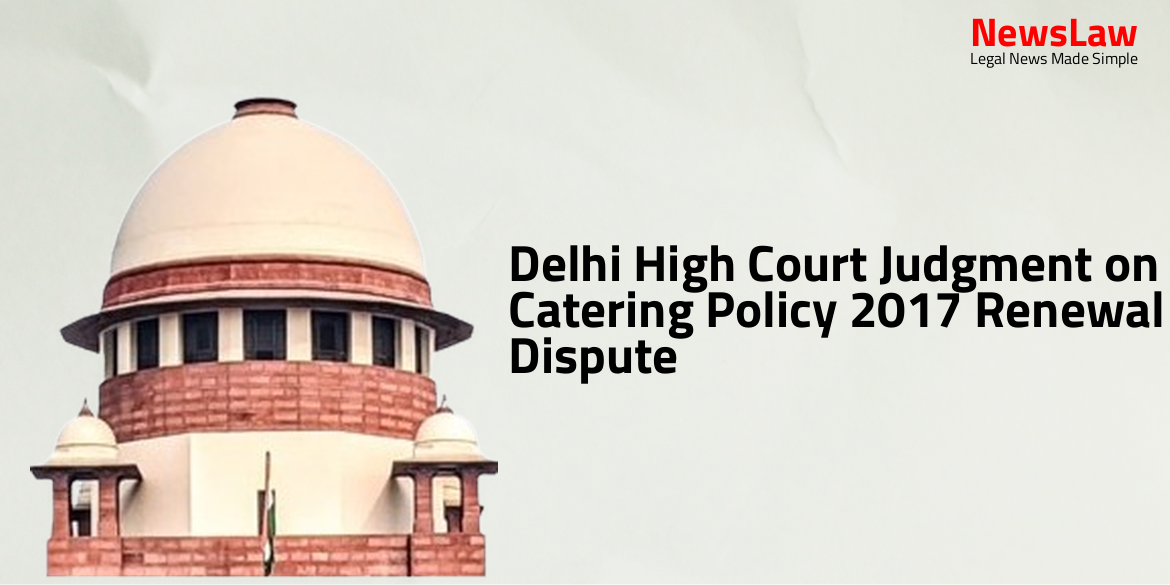This blog delves into the court’s legal analysis regarding the interpretation of international treaty obligations within domestic law. Explore the complexities of aligning international norms with municipal statutes, highlighting the pivotal role of courts in ensuring compliance with treaty obligations while maintaining harmony with domestic legislation. Stay tuned to understand how the courts navigate the intersection of international and domestic legal frameworks.
Facts
- Multiple Writ Petitions were filed before various High Courts challenging the amendment of Import Policy Conditions by the DGFT under the FTDR Act.
- The primary grounds raised in the Writ Petitions included the modification of EXIM policy, excessive delegation of power, and violation of the right to equality under Article 14 of the Constitution.
- The Writ Petitions questioned the authority of DGFT to amend the EXIM policy, stating that such power rests with the Central Government.
- The Writ Petitions pointed out that the impugned notifications had not been laid before the Parliament as required by law.
- Interim orders were passed in different cases allowing importers to import Peas/pulses regardless of the lack of authorizations or exceeding fixed import quantities.
- The legal issue related to ‘quantitative restrictions’ under Section 9A of the FTDR Act was raised during the proceedings.
- Intervention applications seeking permission to import Peas were allowed by the Court.
- Traders had previously challenged import restrictions on beans of Urad/Moong and Pigeon Peas/Toor dal in 2017.
- The Union of India had issued notifications revising import policies for these pulses, including annual quotas and the need for prior licenses.
- The matter was considered significant, leading to a consolidated hearing on the validity of the notifications dated 29 March 2019.
- Multiple Writ Petitions filed in different High Courts challenging Notifications and Trade Notices by DGFT
- Petitions dismissed by Bombay High Court, Madhya Pradesh High Court, and Gujarat High Court
- Challenges to Notifications dated 29 March 2019 and Trade Notice dated 16 April 2019 filed in Rajasthan High Court
Also Read: Analysis of Agency Relationships in Taxation
Analysis
- The analysis delves into the interpretation of Sections 3 and 9A of the FTDR Act in the context of GATT-1994 obligations.
- Section 3 grants the Central Government the power to impose restrictions on imports or exports for trade development and regulation.
- Section 9A serves as a provision to impose quantitative restrictions on imports, mirroring Article XIX of GATT-1994.
- The FTDR Act does not directly incorporate Article XI of GATT-1994 but provides for transformation of treaty obligations into domestic law.
- The jurisdiction and impact of international treaties on domestic law are examined alongside the principles of invocability and direct application.
- The issue of ‘actual user’ condition for imports is highlighted in the context of licensing requirements.
- The Standing Committee’s recommendations and amendments post-2010 are discussed to elucidate the legislative intent behind Sections 3 and 9A.
- Exceptions, consultations, and dispute resolution mechanisms in the GATT-1994 framework are linked to the FTDR Act provisions.
- Interpretation of reciprocal obligations between international law and municipal laws is explored, stressing the responsibility of states to comply with international norms.
- The legal complexities of treaty translation into domestic laws, invocability before national courts, and the need for ‘act of transformation’ are detailed.
- The European Union and member States have competency in shared internal and external fields.
- European Union law enjoys primacy over member State laws and may have direct effect.
- International agreements concluded by the EU become part of its legal order and are placed between the founding treaties and secondary legislation.
- EU law is interpreted in light of WTO obligations for consistency.
- Individuals and member States seeking GATT-1994 incompatibility have received varying responses regarding direct effect.
- United Kingdom functions under a dualist system and treaties do not apply directly without enabling statutes.
- Treaties do not have direct legal force unless incorporated by the legislature.
- Courts aim to interpret the Municipal Statute to align with International law principles.
- Courts are obliged to interpret the law to avoid conflicts with international law and comity of Nations.
- The power to enter treaties lies with the executive, while Parliament holds the power to legislate in respect of such treaties.
- Parliament must pass statutes in case a peace treaty affects the rights of citizens or laws of India.
- Anti-dumping duty laws are recognized under GATT in balancing domestic and international interests.
- Courts seek to give effect to international treaty obligations through legislative action.
- Interpretation of statutes made in response to international treaty obligations must align with the obligations in international law.
- The Parliament’s refusal to perform treaties/agreements should not affect the Union of India’s international obligations.
- National courts must endorse international law to fulfill treaty obligations.
- Incorporation of rules of international law into Municipal Law is acceptable unless in conflict with domestic legislation.
- Key decisions in domestic law are based on the need for ‘act of transformation’ for a treaty’s invocability.
- Court rulings emphasize the need for uniform international law application and avoiding conflicts with domestic law.
- Article 51(c) mandates fostering respect for international law and treaty obligations.
- Municipal laws must respect rules of international law to align with international opinion.
- The settlement of a boundary dispute is not considered cession of territory or constitutional amendment.
- Courts refer to WTO agreements for rationale behind imposing countervailing duties.
- Court decisions point to methods to avoid applying treaty norms directly in specific cases.
- The Authorised Officer is responsible for investigating serious injury or threat of serious injury to domestic industry caused by increased imports of goods into India.
- The Central Government, based on the Authorised Officer’s recommendation, can impose safeguard quantitative restrictions on the importation of goods to prevent or remedy serious injury.
- The final findings of the Authorised Officer are to be submitted to the Central Government, containing all relevant facts and reasons for the conclusions reached.
- The Authorised Officer must provide an opportunity for industrial users and consumer organizations to furnish relevant information in cases where safeguard quantitative restrictions are being considered.
- In cases where action is taken without prior consultation and causes or threatens serious injury to domestic producers, the affected contracting parties have the freedom to suspend relevant obligations to prevent or remedy the injury.
- The investigation process conducted by the Authorised Officer includes identifying the goods subject to quantitative restrictions and recommending the nature and extent of such restrictions to the Central Government.
- The imposition of safeguard quantitative restrictions must be for a specified period to prevent or remedy serious injury and facilitate positive adjustment, with the possibility of extension if necessary.
- The Authorised Officer must determine the existence of serious injury or threat of serious injury by evaluating various objective factors related to the industry’s situation and the impact of increased imports.
- Provisions of the Foreign Trade Policy formulated by the Central Government apply to goods, services, and technology with specified exceptions and modifications.
- The Central Government has the authority to prohibit, restrict, or regulate imports and exports through Orders published in the Official Gazette.
- Importers relied on interim orders from the High Court which were obtained before the dismissal of the Writ Petition.
- The Madras High Court upheld the notification in question.
- Some importers have filed statutory appeals against orders suspending or terminating their import export code.
- The importers cannot be said to have had a bona fide belief in the right they pleaded.
Also Read: Land Auction Dispute Resolution
Decision
- The impugned notifications and trade notices are upheld, and the challenge by importers is rejected.
- Imports made based on interim orders will be considered contradictory to the notifications and trade notices under the FTDR Act.
- Writ petitions subject to the Transfer Petitions are dismissed.
- Writ petitions filed by intervenors before High Courts are dismissed.
- Pending applications are disposed of.
- No costs are ordered.
- The specific aspect mentioned has not been examined or decided upon.
Also Read: Analysis of Bail Conditions in Criminal Appeal No. INSC 48/2024
Case Title: UNION OF INDIA Vs. AGRICAS LLP (2020 INSC 508)
Case Number: T.P.(C) No.-000496-000509 / 2020



